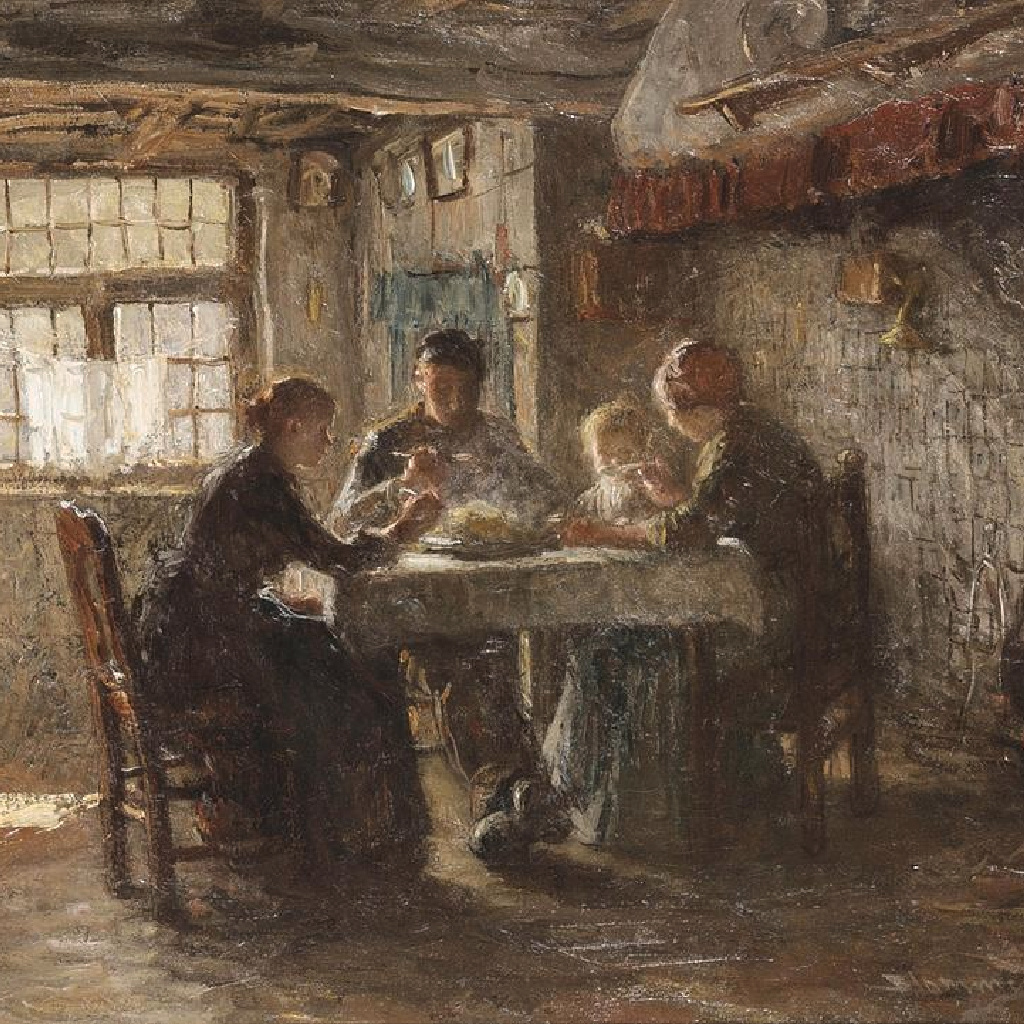Popular culture pervasively stereotypes the sex lives of married Christian couples. Because religious communities encourage sexual purity—chastity before marriage and fidelity in marriage—it’s not uncommon to see religion and sex painted into separate corners. Sex within marriage is often depicted as mundane compared to the enticing portrayal of passionate, “no-risk” sex during singlehood. When religiosity is added to the married mix, you’ve got the perfect media-framed picture of a dull or even non-existent sex life.
Although pop culture continues to exploit religious, sexual stereotypes, the narrative is remarkably far from reality. Current nationally representative studies show that highly religious married couples are having significantly more satisfying sex than their less religious or secular peers.
Painting Christian sexual restraint as negative, then, is a mischaracterization. Religiosity and sexuality are both major influential components of individual and relationship life and are divinely intended to harmonize. Christians celebrate sex as a gift from God as they honor His loving guidance to appreciate, fully embrace, and safeguard sexuality within marriage.
What James E. Faust taught about Christianity generally certainly applies to a divine approach to sexual intimacy: “Many of [the rising generation] are brought up to think that goodness means repression. … But real Christians do not carry their religion [on their backs], their religion carries them. It is not weight, it is wings. … It makes life purposeful, hope real, [and] sacrifice worthwhile. … You can know a real Christian when you see him [or her] by [their] buoyancy.” God’s vision for sexuality is not just about when sex happens but why sex happens.
To fully enjoy sexuality in its beauty within marriage, we need to understand that God’s vision for sexuality is not just about when sex happens but why sex happens. Behavior that coincides with His vision (reverence and respect, including but much grander than abstaining from premarital sex) should be primarily motivated by the idea behind chastity—the celestial heart of the law—the preciousness and invaluable benefits of a sexual relationship found in a loving, committed marriage.
Sexual Sanctification
In a study on the role of religiosity on sexual satisfaction, Nathan Leonhardt and colleagues found that religiosity can have two paradoxical influences on people; religiosity can be conveyed or received in a way that produces sexual guilt, an attitude that can negatively influence sexual satisfaction, or it can instill sexual sanctification—the belief that the sexual bond between partners is sacred—an attitude that can powerfully and positively influence sexual satisfaction. When couples believe that sexuality is designed by God to help couples bond, experience pleasure, and enhance their commitment to each other and their family, religion is a positive force that increases sexual satisfaction for both women and men.
A report from the Wheatley Institution adds that the link between religiosity and sexual satisfaction in marriage is strengthened when partners are unified in religious practices at home. While perhaps not a common Valentine’s Day message, individuals who regularly attend church and regularly practice home worship together (e.g., prayer, scripture study, etc.) have significantly better levels of relationship quality, strong emotional closeness, and high sexual satisfaction. The report states, “This type of unity may help create a sort of spiritual intimacy that … greatly strengthens a couple’s sexual bond. Ultimately, loving and lasting relationships are ones where sexual intimacy is a meaningful physical manifestation of the emotional and spiritual intimacy shared between the partners.”
People of faith understand that sexuality is much more than a matter of physicality. The sanctity of sexuality gives profound emotional and spiritual meaning to the sexual experience and leads to overall greater sexual satisfaction, higher marital satisfaction, and more frequent sex.
Secure Attachment
Sexual intimacy can powerfully fortify couples by strengthening marital attachment. In family relationships, the attachment between a mother and child is a naturally strong, inseparable genetic bond. Spouses, however, must learn this bond and the relational virtues that nourish it. Spouses must choose daily to love, give, and receive strong connection and commitment. Secure attachment is consistently linked to higher relationship quality and is considered a foundational marker of marital health by many marriage and family therapists and scholars. Numerous elements in the design of human sexuality foster and help maintain this enduring attachment bond between spouses.
During sex, the brain releases its own natural aphrodisiac, oxytocin (often nicknamed the love hormone or cuddle chemical), which creates feelings of intimacy and connectedness for both husband and wife. The role of oxytocin, though, is not to heighten sexual arousal or pleasure but to confirm the relationship. The primarily male hormone vasopressin is also released, helping connect a man emotionally to his spouse. Vasopressin is associated with physical and emotional mobilization, which naturally drives men to provide and care for their spouses and children. Biology, then, tells a different story about men’s sexuality than the “emotionally uninvolved” stereotype. The unique bonding features of sexuality serve to strengthen the couple relationship as well as provide an optimal family foundation from which children can survive and thrive.
A Foundation of Trust
Secure attachment can only be cultivated in a relationship of trust, where each spouse is confident in the other’s intimate fidelity and dependability. Relationships grounded in such trust and security are happier, more stable, and more satisfying. There is no more intimate, vulnerable act than sexual intimacy—a symbol and expression of deep unity and trust on every level—physical, emotional, relational, and spiritual. Marital sexuality is a proving ground where husbands and wives entrust themselves to each other and ensure that the other feels understood, safe, accepted, and cared for.
Research on optimal sexuality shows that “great sex” results from a foundation of trust, allowing partners to be vulnerable and emotionally authentic. The “best” physical intimacy begins with emotional and spiritual intimacy—not the other way around. When spouses share themselves emotionally and spiritually first, and when their vulnerability is met with safe holding by their partner, the context and experience of physical arousal are enhanced and enveloped in relational security.
A Chance to Cherish Differences
Perhaps in no other sphere are differences between men and women more naturally apparent than in human sexuality. By nature, the sexual response thresholds of men and women are incongruent, meaning there tends to be a gap in the time needed for men and women to be aroused and then, in sexual intimacy itself, to move from arousal to orgasm. Although both men and women can experience the phases of desire, arousal, orgasm, and resolution, the timing and order can differ between spouses. As well, spouses can prefer different types of intimacy (emotional, physical, etc.), and it’s common for one spouse to desire a higher frequency of connection while the other is more concerned with the quality of connection—both being important and necessary for a healthy sexual relationship.
Positively viewed, differences between husband and wife provide a kind of tension for growth. Providentially, sex releases endorphins which are essential to feeling good and lowering irritability, helping couples work through disagreements—including sexual differences—more lovingly and find common ground that works for both husband and wife. Sexual sharing is a natural context for couples to establish and strengthen a relational template of mutual giving and receiving; spouses learn about each other, appreciate the differences, and integrate them as part of their expression of love. The physical symbol of a couple coming together is a representation of their complementarity; with all their inherent differences, they belong perfectly and, in their sexual sharing, create a sexual and relational wholeness that is both intimate, sacred, and uniquely personal for each couple.
Truly, it is not just dealing with differences but appreciation for the differences between men and women that creates sexual harmony. As one couple expressed: “He reminds us to connect physically, she reminds us to connect emotionally, and together we are a stronger couple.” Learning to appreciate and honor differences as an opportunity for connection rather than conflict has a natural spillover into all areas of the relationship.
Strength in All Seasons
In committed marriages, couples discover that sexual sharing passes through different seasons of intimacy. No particular sexual season is better than the other, but each seems best in its respective time and place over the life cycle. (In early marriage, sex is one thing; in middle marriage, it changes some; in later marriage, it becomes something else.) In every season, sexuality can be wonderful and exactly what is wanted and needed for that season of the couple’s lives. Sexual activity retains benefits for all ages of adulthood, and research suggests that a satisfying sex life among married couples may, in fact, delay mortality. The fact that sexuality is malleable is certainly a genius of its design and evidence of its intended continuous benefit throughout an enduring marriage. Sexual intimacy can powerfully fortify couples by strengthening marital attachment.
Throughout the seasons of a couple’s life, sexuality revitalizes passion for life and for each other. During certain phases of marriage and family life (e.g., pregnancy, childrearing, launching, empty nest, aging), couples will adapt and adjust—hopefully positively and playfully— in many ways. Necessary shifting from spontaneous to purposeful efforts to prioritize the couple’s sexual time in no way diminishes the emotional or passionate energy they’re able to share. Sexual passion stems from each person’s unique way of being and ability to express themselves and their interests to someone they care about. As each spouse continues to personally develop over a shared lifetime, sexuality has the potential for continuous enhancement through familiarity gained and an increasingly deepening relationship.
Embracing God’s Vision for Sexuality
Couple sexuality is a beneficial and integral part of marriage for people of faith. A divine and positive vision for sexuality in marriage can be a powerful motivator for one’s behavior to align with God’s direction both prior to and throughout marriage. How would individual and social attitudes about sexuality change based on the belief that sex is from God, not the world, and intended to wonderfully bless couples’ lives?
Elder David A. Bednar summarized, “[Sexual intimacy] in mortality [is] one of the ultimate expressions of our divine nature and potential.” Embracing this vision, religious parents and couples can speak positively and sacredly about sexuality. Families can teach more about the blessings of bodies, the divinely orchestrated benefits of marital sex, and sexual expression throughout marriage based in mutuality, selflessness, and care. Individuals can prepare early for healthy sexual engagement in marriage by developing areas of physical, emotional, and spiritual health that contribute to sexual wholeness. With a more complete alignment of Christianity and marital sexuality, let us regard sexuality for what it is—a powerful, God-created way for husband and wife to flourish through soul-deep connection, belonging, and love.















